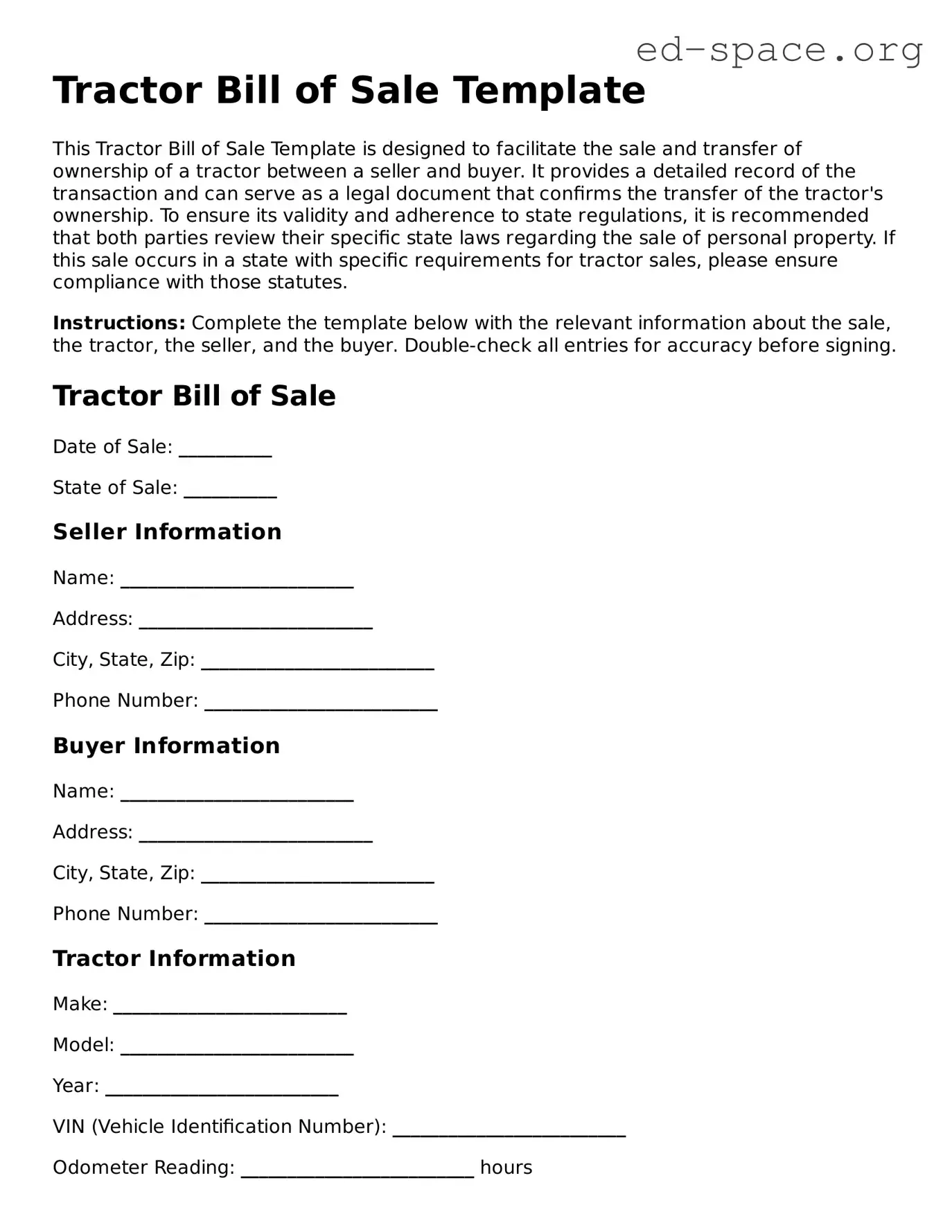Tractor Bill of Sale Template
This Tractor Bill of Sale Template is designed to facilitate the sale and transfer of ownership of a tractor between a seller and buyer. It provides a detailed record of the transaction and can serve as a legal document that confirms the transfer of the tractor's ownership. To ensure its validity and adherence to state regulations, it is recommended that both parties review their specific state laws regarding the sale of personal property. If this sale occurs in a state with specific requirements for tractor sales, please ensure compliance with those statutes.
Instructions: Complete the template below with the relevant information about the sale, the tractor, the seller, and the buyer. Double-check all entries for accuracy before signing.
Tractor Bill of Sale
Date of Sale: __________
State of Sale: __________
Seller Information
Name: _________________________
Address: _________________________
City, State, Zip: _________________________
Phone Number: _________________________
Buyer Information
Name: _________________________
Address: _________________________
City, State, Zip: _________________________
Phone Number: _________________________
Tractor Information
Make: _________________________
Model: _________________________
Year: _________________________
VIN (Vehicle Identification Number): _________________________
Odometer Reading: _________________________ hours
Condition: _________________________
Sale Price: $_________________________
Signatures
The undersigned buyer and seller acknowledge the sale of the tractor described above and certify that it is sold as is, without any guarantee or warranty, express or implied. The transfer of ownership is contingent upon the completion of all required documentation and full payment of the sale price.
Seller's Signature: _________________________ Date: __________
Buyer's Signature: _________________________ Date: __________
Note: Both parties should retain a copy of this Bill of Sale for their records and any future reference, including for use in registration, title transfer, and tax purposes.
